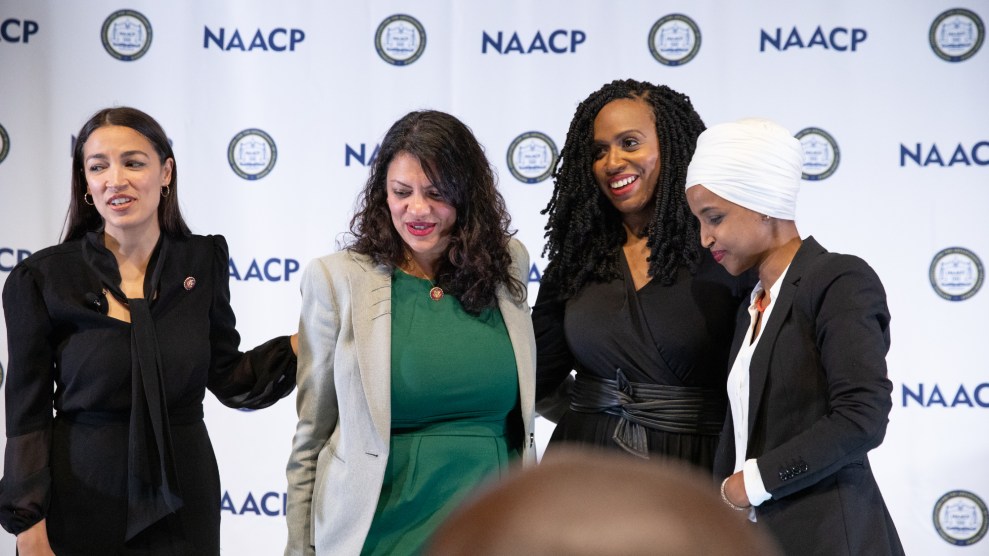Largely unremarked by the media, the fourth annual World Social Forum in Mumbai, India, just came to an end. The forum, which lasted six days and drew more than 100,000 people, is designed as a counterpoint to the World Economic Forum, an annual gathering of business and government leaders held in Davos, Switzerland, which kicked off Wednesday, just as the WSF was ending.
Organizers called it a huge success insofar as it mobilized opinion and widened the global network of civil society groups. In more than 1,200 panels on topics ranging from the U.S. occupation of Iraq to organic farming, hundreds of different groups tried to find common ground. The individual histories of each delegate and speaker are as different as can be, but they all share a common goal: fighting against what they see as global injustice.
The media usually labels these types of activists as ‘anti-globalization,’ a somewhat misleading concept that seems to imply the WSF wants to roll back history. What many people (including some activists) still don’t get is that this movement is not “anti-globalization,” but rather against the globalization of a single (neoliberal) economic model. Thus, when the pressure is on the left to ‘come up with alternatives’, many people expect these to be alternatives to globalization. In this line of thinking, many newspaper commentators still revel in the apparent irony of “anti-globalization” activists using the Internet as an organizing tool. When talking about alternatives, what is meant is alternative models to the way trade is organized right now – not alternatives to trade (perfectly exemplified in the British relief agency Oxfam’s slogan: “Make Trade Fair!”).
Most of the meager media attention devoted to the forum, which was held under the slogan “Another World is Possible,” focused on the question of whether or not it has been able to come up with any concrete alternative proposals. In its wrap-up article, Reuters noted that “all the sound and fury from the forum delegates did not produce any declaration or action plan after a six-day meeting that discussed an alphabet soup of issues from AIDS to WTO.”
The mainstream media, either oblivious to or willfully mischaracterizing this nexus of social movements, glosses over the reality that “alternatives” have never been in short supply. The French group ATTAC, one of the WSF’s best-known attendees, is a good example of a group that has provided very specific proposals. ATTAC, the French acronym for Association for the Taxation of Financial Transfers for the Aid of Citizens, advocates the Tobin Tax (a 0.25% tax on speculative currency trades) as a brake on “casino capitalism”. The tax proposal, suggested in 1978 by James Tobin, a Nobel prize-winning American economist, has received little serious attention internationally. Currently, Canada is the only nation considering implementing it. Other alternatives to the way things are currently done include instituting adequate labor standards, safeguards for human rights, and environmental protections. The obvious trouble with all these ideas, of course, is that they can be truly effective only if implemented and enforced universally.
The India Times reports about the search for alternatives:
“Inside one of the auditoriums, the WSF delegates grappled with alternatives to globalisation. ‘We can’t let capitalism and globalisation get away with the TINA (there is no alternative) factor,’ was the opening refrain from the presidium.
One alternative perspective came from German writer and environmentalist Wolfgang Sachs. People must not only target globalisation, but also economic development ‘which targets people as consumers. The drive for unbridled economic growth had finished off one-third of the world’s arable land, one-fourth of its forests, and one-fourth of all marine life,’ he said. ‘The feast is now coming to an end… And the third world cannot hope to ape the First World in its consumption patterns,’ Mr Sachs argued.…
The WTO regime neither respects nor mentions the laws that have evolved on the biological and environment needs of society; neither is there a mention of human rights in the WTO manifesto.”
While the sheer number of attendees makes the event a success in its own right, most participants agree that there is plenty of room for improvement. Many activists, such as Christophe Aguiton, a spokesman for ATTAC, would like to see the WSF become more than just a space for discussion and take an active role in coordinating campaigns amongst NGOs around the world. It seems that since its energetic initiation in 2000, the WSF has become somewhat stagnant. This year marks the first year in which the number of attendees did not increase, for example. What that means for the movement, or even just for the next forum is hard to say.
Next year, organizers say, the WSF will return to Brazil, where it was founded and where all previous meetings have been held, but there are plans to take it to Africa in 2006, where the focus could be on the AIDS epidemic or the huge amounts of debt crippling many African nations.
WSF attendee Bonaventura Sousa Santos, a Portuguese sociologist, said, ”I think that Mumbai has an historical significance, because it shows that the significance of Porto Alegre can be duplicated in Asia. And if it can be duplicated in Asia, why not in Africa? So, in fact, the [globalization] of the WSF is beginning here.”















